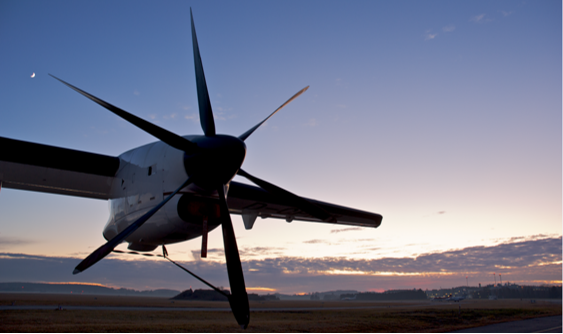ALTEA knows aircraft inside and out. The organisation is retained by those who want fresh thinking secured by experience in asset management; procurement and sales; financial solutions and design. Team member, Angus von Schoenberg shares his personal retrospective views on the regional aviation market in 2022 and looks ahead to 2023.
In the post COVID-19 era, with traffic recovery well underway and projected to reach 2019 levels earlier than predicted, the need to reduce aviation related emissions has returned to the forefront of our industry’s stage. The objective to reach net zero by 2050 has become the greatest challenge that confronts air transport. However, compared to many other industrial sectors, aviation emissions are hard to abate with current mature technology. Compounding that challenge, in some parts of the world, many voters and thus the politicians they elect have concluded that imposing regulation to restrict air travel is a necessary pathway to net zero.
According to Angus von Schoenberg, ALTEA Partner, if travel by air for both people and high value time-sensitive goods intends to continue its historical growth trajectory and provide the economic, social, and political benefits of improved connectivity, then sustainability related innovation throughout the aviation industry value chain is key. “Although aviation has achieved tremendous incremental emissions improvements over the years, the growth of air travel means this is not sufficient. Therefore, in relation to the aircraft themselves, aside from the infrastructure needed to support aviation, there is no silver bullet, but several pathways are underway in parallel,” he explains.
Through its current activities with OEMs, regional airlines, lessors, and other financiers of aircraft, ALTEA is closely involved with this process. Programmes include guidance on the ongoing debate of how best to engage in the development and imposition of metrics to measure emissions and ways to engage effectively with new aircraft technology manufacturers. The ALTEA team brings in-depth experience to the evaluation of new programme risks and opportunities, and crucially a realistic assessment of the timing of such projects.
What insights can ALTEA explain?
Looking at new technology, Schoenberg points out that the readiness level of next generation aircraft powered solely by batteries; a hybrid electric propulsion system; or hydrogen either through fuel cells or direct combustion; is such, that only short-range general aviation or regional and commuter aircraft are realistic over the coming decade. “For larger airliners, there is a widespread consensus that SAF is the only path to reduced emissions in the short to medium term. As ALTEA’s commercial aviation expertise lies predominantly in regional aircraft, we are continually confronted by new technology developments to an extent that broader service providers to the larger commercial airliner industry are not.”
Schoenberg goes on to say that a feature of the airframe and engine OEM landscape in recent decades, in both the regional and larger aircraft segment, has been a duopoly – Boeing/Airbus; Embraer/Bombardier commercial airliners now part of Airbus and ATR/De Havilland. However, the plethora of start-up manufacturers in the electric and hydrogen space re-introduces the competitive forces that disappeared towards the end of the last century in the turboprop space where Fokker, Saab, Embraer and BAe were once all competitors against ATR and De Havilland.
“ALTEA’s regional aircraft background means that we are acutely conscious of the risks associated with multiple manufacturers offering different solutions. Indeed, it is likely that not all the new start-ups will survive in their current form either because some may merge, while others may ultimately fail. The risks of new technology and their respective OEMs cannot solely be evaluated with industry standard credit due diligence analysis metrics. It requires a deep understanding of the strengths and weaknesses of the entire turboprop space and a strong technical focus with the capability to evaluate the diversity of solutions being proposed,” he emphasises.
Lastly, regional aircraft and particularly turboprops often serve remote locations with restricted levels of physical infrastructure. “Sometimes this includes an inability to refuel at outbound destinations so that fuel tankering is required for the return sector,” says Schoenberg. “As new technology aircraft can only succeed if the necessary fuel infrastructure in whatever form is available on any intended services, this represents a challenge that cannot be overlooked.”
The investment in new technology aircraft to support the drive to the best low emissions solutions at minimal risk is highly complex. The regional aviation expertise provided by the ALTEA team across a diverse range of projects is recognised for its specialist focus and technical acumen resulting in its engagement by a group of remotely located regional airports at board level.
Company Contacts:
Angus von Schoenberg angus.schoenberg@altea-aero.com
